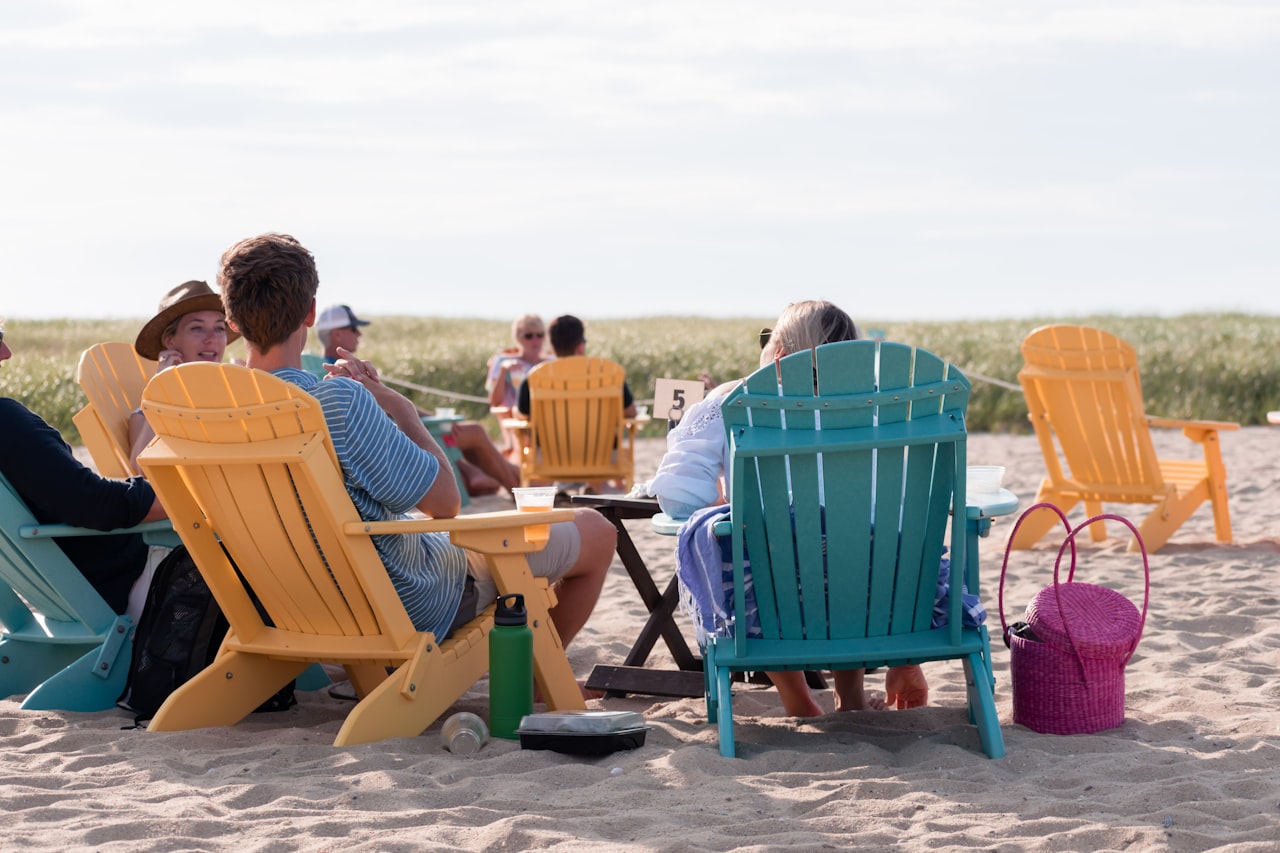Introduction: Nestled at the "elbow" of Cape Cod, Chatham, Massachusetts, is a charming town with a rich history that echoes through the centuries. From its Native American roots to its flourishing maritime era, Chatham has evolved into a beloved summer retreat. Join us on a journey through time as we unravel the captivating history of this picturesque town.
Native Roots and European Encounters: Chatham's story begins with the Nauset tribe, particularly the Manomoy or Monomoy people, who roamed the expansive lands known to them as Manamoyik or Monomoit. Explorer Samuel de Champlain made landfall here in October 1606, interacting with the Nauset and leaving an indelible mark on the region. Despite earlier European encounters, it wasn't until 1664 that English settlers permanently occupied Monomoit.
Incorporation and Renaming: Chatham officially became a town on June 11, 1712, incorporating itself into the fabric of Cape Cod. It was renamed after Chatham, Kent, England, solidifying its ties to the Old World. The town expanded its territory in 1797 with the annexation of Strong Island, setting the stage for its maritime prominence.
Maritime Prosperity and Architecture: Situated strategically, Chatham emerged as a shipping, fishing, and whaling center, setting the foundation for its early prosperity. This era left behind a legacy of 18th-century buildings, contributing to Chatham's timeless charm and transforming it into a sought-after summer resort.
Chatham Lighthouse: A Beacon of Protection: President Thomas Jefferson established the Chatham Lighthouse in 1808 to safeguard ships navigating the Cape's treacherous waters. The lighthouse, with its rich history and iconic twin towers, continues to stand as a symbol of maritime heritage. The keeper's house now houses a Coast Guard station, maintaining a watchful eye over the Atlantic and Nantucket Sound.
Conservation Efforts and Reforestation: In 1821, Chatham embarked on the first reforesting project in America on Great Hill. Pine trees and beach grass were planted to combat erosion and prevent sand from encroaching on the village. This pioneering effort showcased Chatham's commitment to preserving its natural beauty.
Quaint Main Street and Cultural Vibrancy: While urban sprawl has touched many parts of Cape Cod, Chatham retains its quaint and walkable Main Street. Family-owned shops, restaurants, and businesses line the pedestrian-friendly crosswalks, offering a delightful shopping experience. Main Street comes alive with summer concerts, and the Chatham Anglers baseball team adds to the vibrant cultural scene.
Challenges and Modern Dynamics: Chatham, like other parts of Cape Cod, faces challenges such as an exodus of young people due to high housing prices. Many homes remain vacant during the winter, only to come alive in the summer with second-home owners and tourists. The average listing price for a home in Chatham reflects the town's desirability.
Summer Rush and Conservation Efforts: During the summer, Chatham experiences a surge in population, reaching an estimated 30,000. This influx poses challenges, with overcrowded facilities and limited parking in the Main Street Business District. Even cherished beaches, like Lighthouse Beach, witness the impact of increased visitors.
Historical Sites and Museums: Chatham proudly preserves its history through various sites and museums, including the Atwood House (1752), Caleb Nickerson House (1772), Chatham Windmill (1797), and more. These landmarks provide glimpses into Chatham's past and its enduring cultural legacy.
Conclusion: Chatham, with its fascinating history and enduring charm, stands as a testament to the resilience of Cape Cod's communities. From Native American roots to maritime prosperity, and challenges in the modern era, Chatham continues to captivate residents and visitors alike. Explore its historic sites, stroll along Main Street, and immerse yourself in the timeless allure of this picturesque Cape Cod town.
Explore real estate in Chatham today by contacting premier Chatham, MA Realtors Tony Guthrie and Alfred Schofield with Berkshire Hathaway Chatham and Robert Paul Properties.
































































































